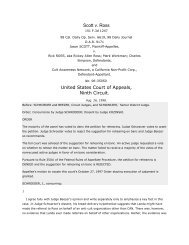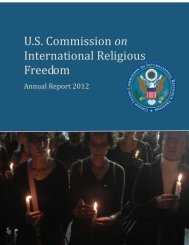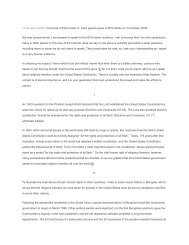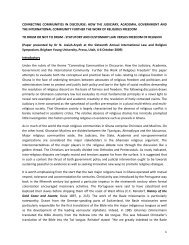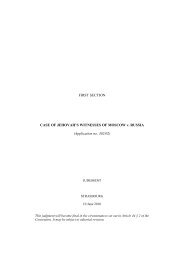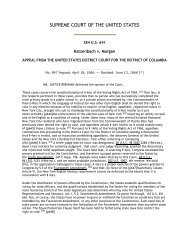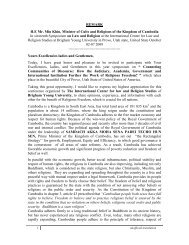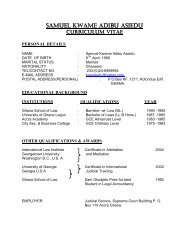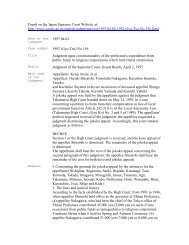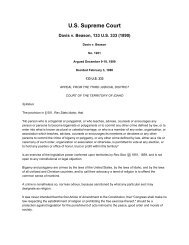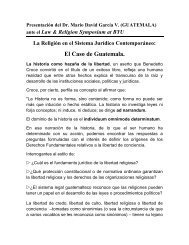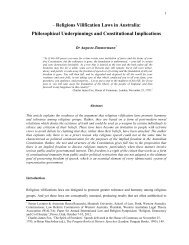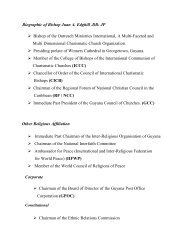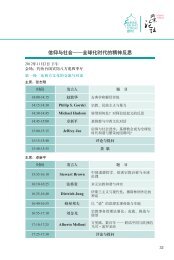Ruling (.pdf) - International Center for Law and Religion Studies
Ruling (.pdf) - International Center for Law and Religion Studies
Ruling (.pdf) - International Center for Law and Religion Studies
You also want an ePaper? Increase the reach of your titles
YUMPU automatically turns print PDFs into web optimized ePapers that Google loves.
such a defence should not be read into the legislation. (See Ontario (Human RightsCommission) v. Brockie (2002), 222 D.L.R. (4 th ) 174). Rather, the Ontario Codedefences, based on the reasonable <strong>and</strong> bona fide qualification justification, are onlyavailable in certain limited <strong>and</strong> specified circumstances.[97] Where an organization claims a section 24 exemption, it must bring itself withinthe class of organizations (religious, philanthropic, educational, fraternal or social) towhich that section applies. But that is not sufficient. It must also establish it is primarilyengaged in serving the interest of persons identified by one of the prohibited grounds ofdiscrimination <strong>and</strong> it seeks to restrict employment to persons similarly identified. Then,<strong>and</strong> only then, can it rely on a claim that the qualification is justified by the nature of theemployment.2008 HRTO 22 (CanLII)[98] There are other sections of the Code that permit an employer to justify adistinction or qualification as being reasonable or bona fide, but they are limited toparticular circumstances or grounds. For example, section 11 permits distinctionsbased on a “reasonable <strong>and</strong> bona fide qualification”, but that section applies only toconstructive or adverse effect discrimination. Christian Horizons did not rely on thisprovision, presumably because the requirement of religious adherence is discriminatoryon its face. Section 17 permits an employer to impose a restriction or qualificationwhere the basis <strong>for</strong> the qualification relates to the essential duties of the position (<strong>and</strong>the employer has demonstrated that accommodation is not possible without unduehardship), but this only applies in respect of discrimination on the basis of disability.[99] The recent B.C. Human Rights Tribunal decision in Smith v. Knights ofColumbus, 2005 BCHRT 544, further highlights the significance of the differencebetween the B.C. <strong>and</strong> Ontario Codes. In Smith, the B.C. Tribunal dealt with a claim thatthe Knights of Columbus refused to rent a hall which it operated on behalf of theCatholic Church to a lesbian couple who wished to use the hall to hold their weddingreception. The Knights, a not-<strong>for</strong>-profit, Catholic organization argued same sexmarriage was contrary to its core religious beliefs. The Tribunal held the Knights wereentitled to refuse to rent the hall <strong>for</strong> the celebration of same sex marriages on the basis26



